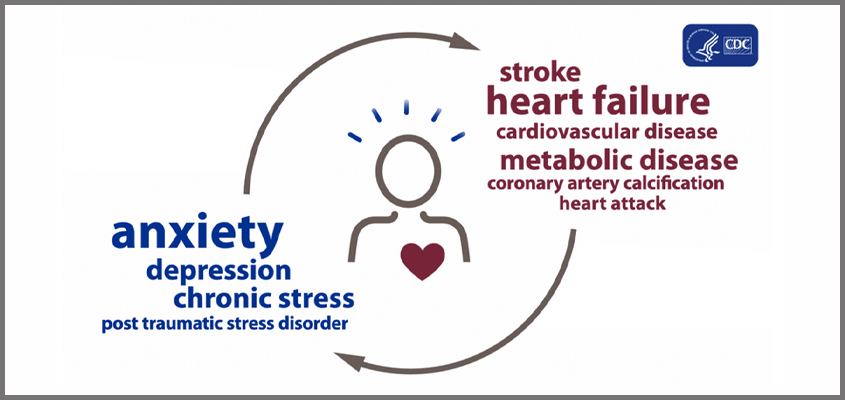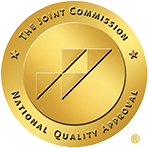
Mental Health Can Affect Your Heart Health
Research shows that mental health can be associated with risk factors for heart disease.
According to the Centers for Disease Control and Prevention, individuals who experience long-term depression, anxiety, stress, and PTSD may experience an increased cardiac reactivity.
This can include:
- Increased heart rate
- Increased blood pressure
- Reduced flow to the heart
- Heightened levels of cortisol
Over time, these effects could lead to calcium buildup in the arteries, metabolic disease, and heart disease.
In turn, evidence shows that a cardiac event (like heart failure, stroke, or heart attack) can create depression, anxiety, and PTSD. This may increase the chance of adopting behaviors that can increase heart disease risk, such as smoking or an inactive lifestyle.
Addressing mental health issues early can reduce your risk of experiencing a heart-disease event. Be sure to talk to your doctor or healthcare professional about any concerns.
Recent Blogs/News
We invite you to view our recent blogs and news. For your convenience, our latest Post is shown below!
 https://clearskyhealth.com/riorancho/wp-content/uploads/sites/2/2022/02/022222.jpg
400
845
angelo
https://clearskyhealth.com/riorancho/wp-content/uploads/sites/2/2020/09/Logo.png
angelo2022-02-22 11:08:322022-03-22 10:42:59Sleep and Heart Health
https://clearskyhealth.com/riorancho/wp-content/uploads/sites/2/2022/02/022222.jpg
400
845
angelo
https://clearskyhealth.com/riorancho/wp-content/uploads/sites/2/2020/09/Logo.png
angelo2022-02-22 11:08:322022-03-22 10:42:59Sleep and Heart Health https://clearskyhealth.com/riorancho/wp-content/uploads/sites/2/2022/02/020822.jpg
400
845
angelo
https://clearskyhealth.com/riorancho/wp-content/uploads/sites/2/2020/09/Logo.png
angelo2022-02-08 15:48:282022-03-22 10:43:10Heart Attack Symptoms in Women
https://clearskyhealth.com/riorancho/wp-content/uploads/sites/2/2022/02/020822.jpg
400
845
angelo
https://clearskyhealth.com/riorancho/wp-content/uploads/sites/2/2020/09/Logo.png
angelo2022-02-08 15:48:282022-03-22 10:43:10Heart Attack Symptoms in Women





